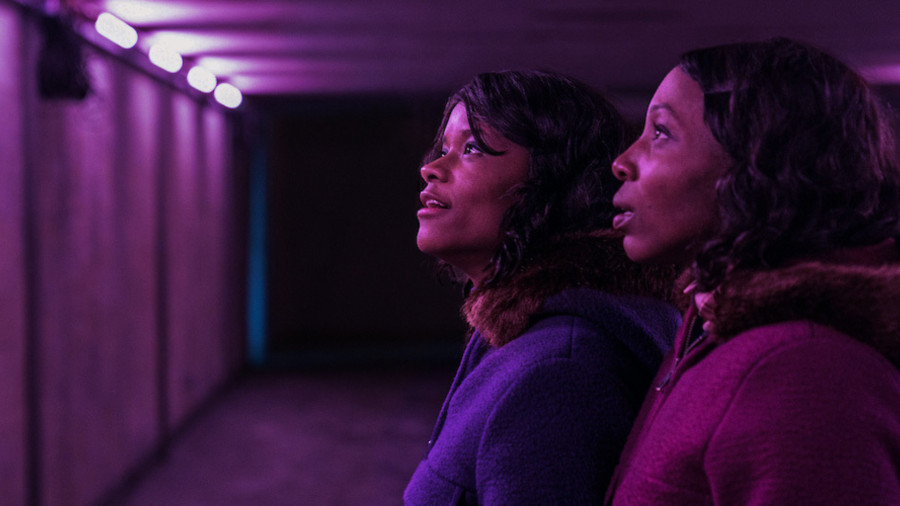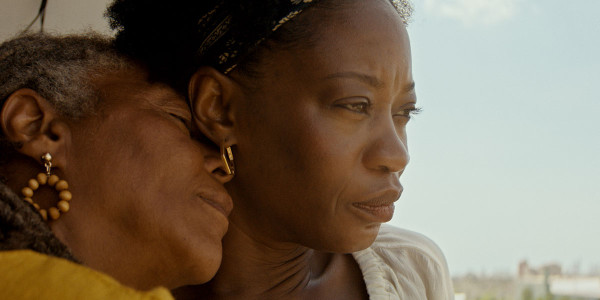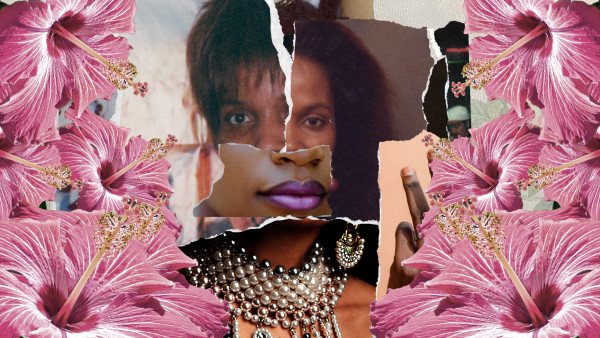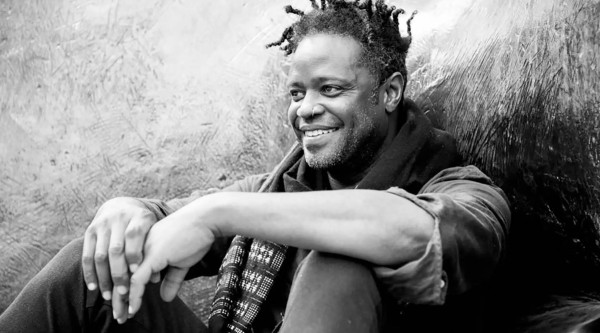Based on the 1986 book by Marjorie Wallace, the Focus Features film stars Letitia Wright as June Gibbons (Black Panther, Small Axe) and Tamara Lawrance as Jennifer Gibbons (King Charles III). They both inject a great deal of passion and intensity into their respective roles. Watching the story unfold is a melange of emotions. From the fun and exploratory aspect of the twins’ imaginary world to the heartbreaking reasons their relationship wrestled with profound love and searing disdain for each other, it’s a tumultuous ride worth watching.
Emmy-nominated actress Letitia Wright stars in the film and sits as a producer on the project. Wright continues to explore stories that she feels alignment with and that have meaning, “I like stories that have something to say, and I felt like this was one of those opportunities to do that. I found the life of the twins so, so interesting. Also, what they went through. You know, they had to overcome a lot of hurdles and obstacles just to survive. I found that to be an interesting opportunity to portray on screen and one that I'm very proud of.”
{https://www.youtube.com/watch?v=lEN2rk__Xms}
She really should be proud. The intricate story of the Gibbons sisters is tiered and complex. Born in Yemen in 1963 and raised in a Bajan household, the family relocated to a small town in Wales when the girls were young. The family moved around because of their father’s occupation in the Royal Air Force. As the only Black family in their Wales neighbourhood, the girls were subject to racism, harassment, severe bullying, and ostracism. Everything was also intensified by the failure of others to understand their Bajan accent and the secret language the girls used. Everyone’s reactions caused the sisters to retreat within. They lived in a quiet space—amid everyone, the twins never spoke. However, closed off from everyone else when they were together, their world was vivid, creative, verbose, reflective, and sometimes dark and tormenting.
Like the twins, Wright was also born in Guyana and later transplanted to England at a young age. Being a Caribbean expat, she can wholeheartedly understand the connection in how a grand transition like the twins experienced could affect them. “Yeah, I can understand how [I can relate.] My journey as a young Guyanese girl moving to England when I was seven or eight— immediately, my accent was different from all the kids in the room. I immediately saw people I never saw before unless they were on TV. I saw various people, including white people, I never saw before in real life.”
Wright continues, “And the thing in particular that I remember about that assimilation or that shift from one culture to the next or one place to the next was I tried to assimilate. I tried to be small. I didn't want to bring attention to my accent. I didn't want to bring attention to the fact that I was from Guyana or fresh. I was fresh off the plane. In a way, I wanted to feel British. I remember looking at myself in the mirror and wanting to sound like the kids in my school because that was normal. It was what I needed to do to fit in. So now when people speak to me, and they're like, ‘oh, I can hear a little bit of your accent,’ I'm like? I thought I assimilated well, but who you are always come out.”
When Jennifer and June were younger, they lived by the notion that ‘you will never find joy if you want to be alone.’ Yet as they got older, they decided that one had to die to set the other free. Their lives started with an incredibly selfish point of view, only to turn into a selfless one. All of their sacrifices and behaviours, from rebellion to vandalism and arson, which landed them in a high-security psychiatric hospital, were an outward response to a world that was not so kind to them. It was their way of surviving and coping. Their experiences shaped their understanding of the world and their understanding of the dynamics of their relationship.
Wright explains, “The beginning of your analogy is beautiful because that's how they survived. It's like you can't move. You can't find love until you can't find anything better than this. And that is a way of them protecting themselves. That pact that they made with each other was so strong. And as they continued to live, they realized that something would have to give. That bond, that codependency, was so unhealthy for them, but in a way, it protected them. I think they understood that there needed to be some separation, but it became too late by the time they wanted to accept it.”
In the Gibbons sisters’ search for peace and solace, detrimental sacrifices were made. Their relationship with each other was complex, while their relationship with society was muted. So often, we hear stories of how Black bodies are regulated to societal labelling and marginalization. Or, we are completely disregarded instead of others taking the necessary pivot to inquire further and understand or assist in an unprecedented situation. More than often, it can be challenging to simply just be, which, as discussed earlier, Wright understands all too well. But she has some words of encouragement for those who feel out of place or are shunned by what society deems normal. “There's so much I can say about this, but you know what, for myself growing up as a young Black woman in the U.K., coming from Guyana, there's something that followed me for years, and I felt like I was an outsider for so long.”
“I felt like an outlier. I felt like I just didn't fit in,” states Wright. “I think it forced me to look within and find my own truth and my own beauty that the world could not take away from me. And I think if I am to encourage someone that feels like the other, that feels like their voice is never heard, or if they feel unseen, is that the strength comes from the value that you find within yourself because human beings will value you one day. Then the next day, you're not valued anymore depending on how the wind blows and how people feel.”
Wright emphasizes, “If you can find strength within yourself and know who you are, that's unshakeable and unchangeable. Then you can take on the world. Once you love yourself, there's real self-love and healing. If you've gone through trauma, and you’re doing the work to understand who God made you to be—then there's nothing that can stop you.”
You can catch The Silent Twins playing now in a theatre near you.

 By
By 








